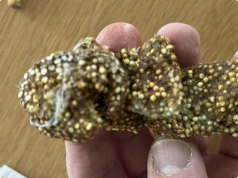As marijuana laws continue to loosen across the U.S. and the world, cannabis use among adults has become more normalized — especially among those in their late 20s and 30s. But while many view marijuana as a harmless or even beneficial substance, emerging research suggests that continued use into your 30s may have more significant consequences than previously thought.
A notable study conducted by The University of Queensland in Australia has sparked conversations about how marijuana use in adulthood could influence long-term life outcomes. The findings indicate that individuals who continued to use cannabis into their 30s were more likely to experience setbacks in key areas such as education, income, home ownership, relationship satisfaction, and overall happiness.
What the Study Found
The study followed participants over several years and categorized them based on when they used cannabis:
- Those who used cannabis only during adolescence (teens to early 20s) showed no significant long-term negative effects .
- However, those who continued to use regularly into their 30s were more likely to:
- Earn less income
- Achieve fewer educational milestones
- Own a home later in life
- Report lower levels of life satisfaction and stable relationships
These findings suggest that occasional or experimental use during youth doesn’t necessarily derail future success , but ongoing use in adulthood might interfere with critical life development .
Why Cannabis Use at 30 Might Matter More
By the time someone reaches their 30s, many foundational life decisions are being made — career paths are solidifying, relationships are deepening, and financial goals are taking shape. Cannabis use during this time may affect motivation, focus, and decision-making, which are all crucial for long-term success.
Some researchers believe that chronic use in adulthood may impact executive brain function , including memory, planning, and impulse control. While occasional use may not pose a serious risk, daily or heavy use could interfere with productivity and goal-setting , especially in high-pressure or competitive environments.
Important Limitations to Consider
It’s important to interpret these findings with a critical eye. The study had several limitations:
- Cultural and geographic context: The research was conducted in Australia, where social norms and economic structures may differ from other regions.
- Subjective success markers: Metrics like home ownership or relationship status are influenced by broader societal trends and personal values.
- Lack of control for other substances: The study did not account for the use of alcohol or other drugs, which could also influence life outcomes.
Despite these limitations, the results offer a valuable conversation starter about the potential consequences of long-term cannabis use.
The Takeaway: Know Your Limits and Priorities
The key message isn’t that marijuana is inherently harmful, nor that using it in your 30s will doom your future. Rather, it’s about being mindful of how cannabis fits into your life .
If you’re in your 30s and notice that your marijuana use is:
- Affecting your motivation or productivity
- Interfering with work or financial goals
- Straining relationships or emotional stability
…it may be time to reassess your habits. Moderation and self-awareness are key. Occasional use can be part of a balanced lifestyle, but when cannabis use becomes a daily crutch or habit , it may start to impact your ability to reach your full potential.
Final Thoughts
As with any substance, the effects of marijuana vary from person to person. While early use may not have lasting consequences, continued heavy use in adulthood could influence your trajectory in meaningful ways .
If you’re in your 30s and using cannabis regularly, consider how it aligns with your personal and professional goals. The goal isn’t to instill fear, but to encourage informed, intentional choices — because your future is worth protecting, one decision at a time.
Remember: Experimenting with weed in your youth doesn’t define your future — but how you manage its role in your life moving forward just might.






